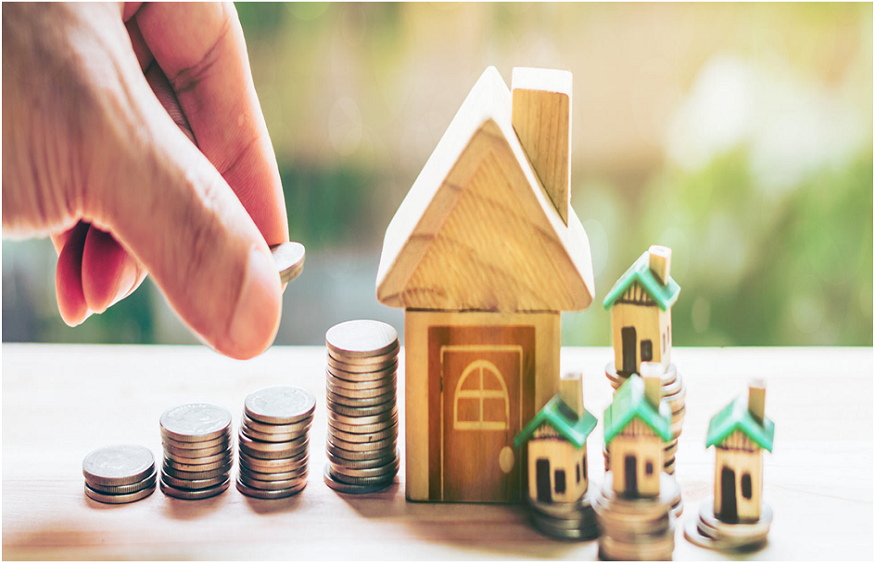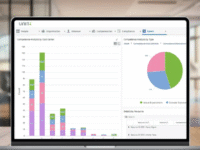Is Refinansiering Your Best Option?

Have you heard of refinancing your mortgage? Probably, if you are a homeowner yourself. Homeowners who currently have a mortgage may have the option to refinance into a new home loan in order to shorten the term of their mortgage, reduce the interest rate on their mortgage, or use their equity to meet other financial needs.
Why? Because there is a chance that they will finish up spending more money on it, or because it will require more effort than it is worth, both of these are reasons why they won’t do it.
If you are considering getting a new loan, you should consider the following positives and negatives before making a decision on whether or not to refinance your current loan.
The Advantages of Getting a New Loan
There is a chance that refinancing a mortgage might provide major benefits, but those benefits are reliant not only on the terms of the refinance but also on your individual situation as well as the goals that you have set for yourself. And while the fact that a refinancing may be able to give you with the following benefits, you should be aware that there may also be some disadvantages associated with the process.
Repay Your Loan in a Shorter Amount of Time
It is possible for you to convert your current mortgage into a new loan with terms that are more advantageous to you. By shortening the duration of the loan, you increase the likelihood of completing the process of paying off your mortgage and generating equity in your home more quickly.
This means that you will own your house free and clear sooner and be able to enjoy the benefits of doing so, such as lowering the amount you spend on interest and increasing the amount of money you have every month when you are no longer required to make a mortgage payment.
The Overall Costs of the Loan Will Be Cheaper
When you shorten the length of time it takes you to return the loan, you also shorten the period of time during which you are responsible for making interest payments on the loan. Because of this, the overall amount of interest that you will have to pay back on the loan will be less than it would have been otherwise. But what would happen if you make no attempt at all to shorten the period of the loan?
In spite of this, it is possible that you may end up spending less money on the mortgage throughout the course of its duration.
It is possible for you to get a lower interest rate if the rates at which you can refinance are more competitive than the current rate on your loan. This will result in a reduction in the total amount of interest that you are needed to pay during the course of the loan’s term; this is due to the fact that you are obligated to pay interest on the loan until it is completely repaid until it is fully repaid.
Payments Will Eventually Become More Predictable In the Future
You may be qualified to refinance your loan into a mortgage with a fixed interest rate if you presently have a loan with an adjustable interest rate. When you get a loan with an adjustable rate, the amount of interest you pay will change throughout the course of the loan based on how the market is performing at the time. This suggests that it may go either up or down, and regardless of which way it goes, your monthly payment will go in the same manner.
When you take out a loan with a fixed rate, the interest rate that you are charged will be the same during the whole period of the loan. Since the total amount that you spend each month on principal and interest will stay the same, it will be much simpler for you to create a budget that accounts for your monthly payments because the total amount that you spend will not change.
It is important to keep in mind that the amount of money you put into escrow might shift based on the final prices of your property taxes and insurance. Because of this consistency, it could be easier to put together a spending plan.
Paying for Some Expenses
You are able to take out a loan against the equity that you have built up in your home through a cash-out refinance. This can be useful if you wish to make modifications to your property, pay down and consolidate your debts, or pay for things like debt consolidation.
You will just obtain a loan for an amount that is higher than what you are now obligated to pay back, and the difference between the two amounts will be yours to keep as profit. You could check out The Inn Refinansiering, among other options to learn more about the benefits of refinancing.
A few final words
Now that you have everything cleared up, you should be able to make a decision fast. Reduce your monthly payment, decrease the duration of your loan, or increase your equity faster with a refinance. It may also be a useful tool for reducing debt if utilized correctly. Consider how long you intend to stay in your current home before considering a refinancing option. Whether or not it’s worth it to refinance my home?
Refinancing might cost anywhere from 3% to 6% of the original loan amount. The savings from a lower interest rate or even a shorter term will take years to recover that expense. Refinancing might be prohibitively expensive if you have no intention of staying in the house for an extended period of time.
It’s also a good idea to keep in mind that a smart homeowner is continually searching for methods to lower their debt, increase their equity, save cash, and eventually pay off their mortgage entirely. Refinancing and taking money out of your equity won’t help you reach any of those objectives.





